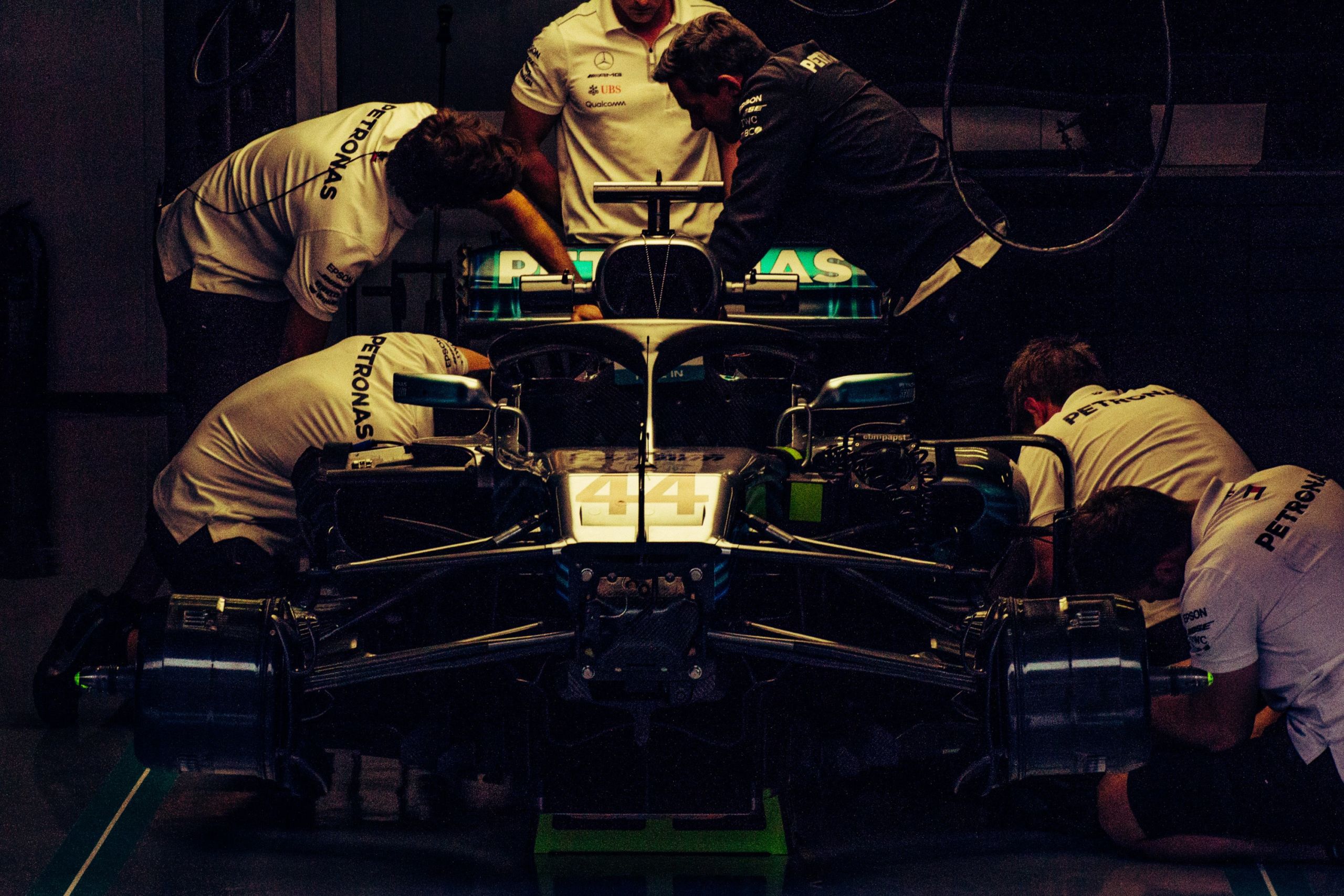
Technologies used in racing cars or Formula One cars have not been applied in the industrial production of traditional cars since it has been viewed as too costly. However, F1 technology is now applicable to road cars as they become more advanced in the electric era. Read on to learn how advanced technology gets transferred from Formula 1 to production cars…
Formula One Improves Efficiency
Since F1 technology has been extended to other cars, it has been observed that it offers excellent thermal efficiency. When the combustion engine was first developed, its thermal efficiency was only about 17%. This means that only 17% of the fuel was transformed into useful energy.
Following the introduction of hybrid power units using F1, thermal efficiency in road cars increased to about 30%. This trend continued until a Mercedes-Benz F1 power unit showed that thermal efficiency can reach over 50%. It has since been proved that F1 power units are very efficient, and the technology has been adopted in the production of road cars.
Enhanced Efficiency and Battery Technology
Formula One technology has significantly contributed to the development of the automobile industry since it is now applied to other cars apart from racing cars. F1 hybrid cars are highly efficient, and the power units have significantly contributed to battery technology. The weight of the battery of the first energy store in 2007 was more than 100 kg, but today it stands at 20 kg. Lithium-ion batteries are rechargeable and are specifically designed for hybrid vehicles.
This kind of technology is not only making F1 cars more efficient but it also helps enhance the efficiency of road cars by improving their fuel consumption patterns. However, fobbattery.com explains that car fob batteries should be promptly changed once they are past their life span; this measure is necessary for properly and safely maintaining vehicular efficiency. Changing your car battery is not a difficult task since you can easily do it when you have the appropriate knowledge. There are different types of batteries available, so you should understand your car brand to take the appropriate action.
F1 Provides Better Testing for Cars
The production of automobiles is rapidly changing, and Formula One technology is taking a leading role. When carbon fiber was first used in racing cars in the 1980s, it was not included in mass-produced cars. However, F1 technology has heralded customized production of cars. This has resulted in a new order in the automobile industry. New technological advancements such as connectivity and data processes mean that modern machines can perform various tasks accurately.
The 21st-century manufacturing technology has significantly revolutionized different manufacturing sectors including the automobile industry. Formula one technology provides customized prototypes of automobile parts, and these are made rather quickly when compared to the traditional methods of doing so.
The automobile industry is undergoing significant changes, and some road cars are becoming quite complex; this is where F1 technology is now used in the broader automobile industry. As technologies continue to improve, F1 has been used as the testing ground for the traditional car industry. It continues to take centre stage in the development of cars.
Transforming Production Technologies
Digitalization has significantly changed the way F1 cars are developed and produced. Traditionally, the development of F1 cars was different from the production of road cars. F1 cars required a lot of customization whereas road vehicles were produced on a large scale. This kind of technology was expensive, and this is why it was limited to racing cars at first.
However, the advancement of modern production methods has resulted in the gap between customized manufacturing through F1 technology and large-scale production closing. We are currently in the fourth industrial revolution, and Formula one Technology is at the forefront.
This means that technological advancements have revolutionized the production process of cars since modern machines can perform multiple tasks. This has been made possible by improved connectivity and data processing.
Enhanced Server Technology
F1 server racks store crucial vehicle data, and they are often moved around the world. Another notable aspect about these servers is that they are different from ordinary computer servers since they can withstand harsh conditions like temperature changes, the buildup of carbon fibre dust, and vibrations.
Thankfully, F1 technology is now spreading to road cars since it is now applied in other sectors of the automobile industry. High-tech servers can be used on mobile data centres on different types of vehicles. This significantly enhances the production process of different vehicles.
Formula One technology has been limited to racing cars for a long time, but the trend is shifting since it is now transferred to the production of traditional vehicles. F1 servers allow massive volumes of data to be accessed, analyzed, and processed quickly. The same method can now be applied in other sectors like the medical and automobile industries.
